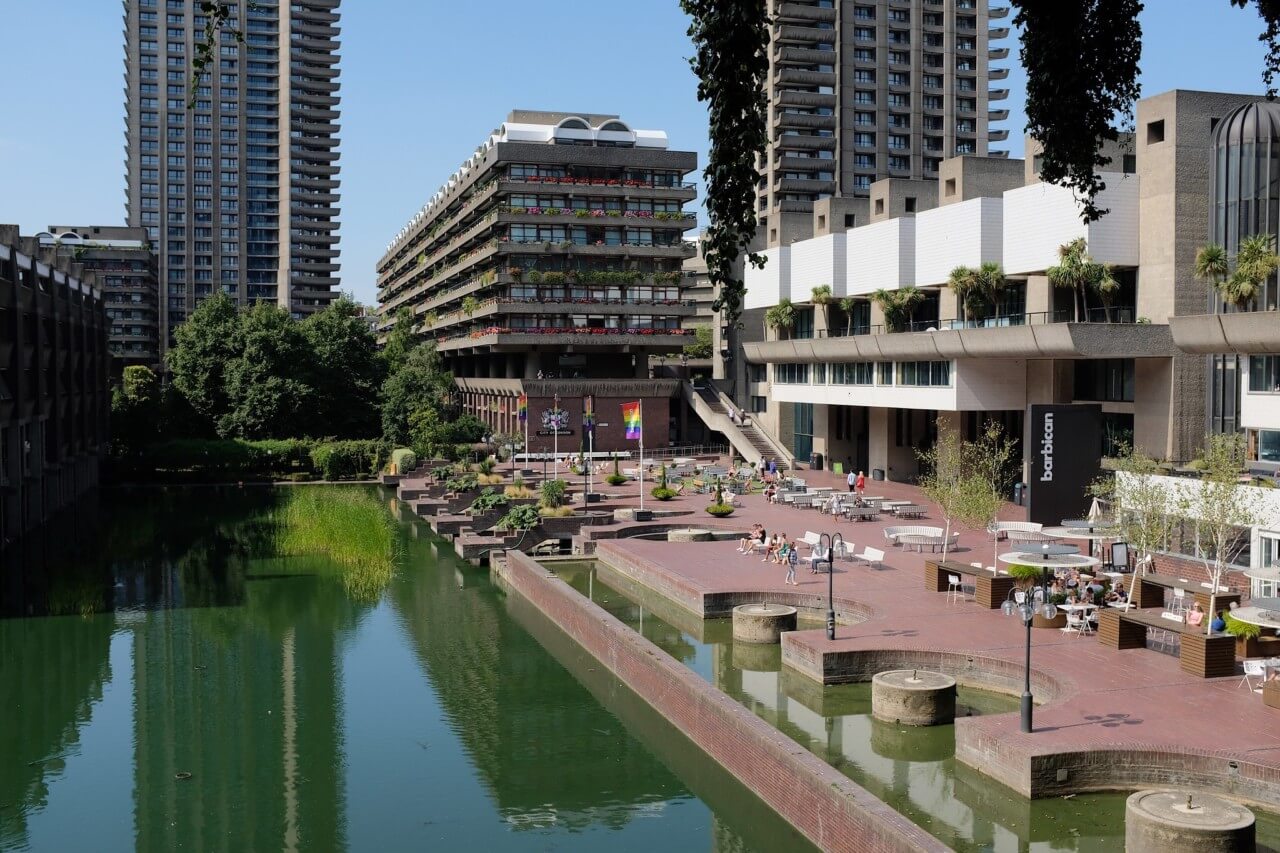The City of London Corporation has formally announced a major international design competition seeking teams to revamp and reenergize the Barbican Centre, the beloved Brutalist icon and multidisciplinary arts and cultural hub that anchors a massive post-war housing estate of the same name in central London. Per the Barbican Renewal website, the city is specifically on the hunt for a team that “can develop design solutions that will preserve and respect the complex’s original architectural vision and heritage, while adapting it to respond to the creative opportunities and urgent challenges of today’s world.”
Completed and debuted to the public in 1982, the Grade II-listed campus was designed by Chamberlin, Powell & Bon and features, among other highly trafficked venues, a three-screen cinema, galleries, conference halls, restaurants, a major public library, and multiple performing arts venues including the 1,943-capacity Barbican Hall, home to both the BBC Symphony Orchestra and the London Symphony Orchestra. Despite its enduring popularity, the decades haven’t always been so kind to the manmade lake-flanking concrete complex and, as detailed by the City of London, which owns and manages the center, there’s a “pressing need to make changes to the Barbican building so that it continues to meet the needs of 21st-century artists, audiences, and communities.”
The scope of the estimated $69-to-$206 million overhaul encompasses the Barbican Centre building in its entirety and will explore “how we can adapt the Barbican’s spaces and venues to improve the experience of audiences and visitors at every point of their journey, from the sense of welcome and belonging on arrival to major improvements to wayfinding and look and feel across the building.”
Major upgrades and enhancements at the Barbican were previously carried out by Allford Hall Monaghan Morris in 2005 and 2006.
Major focus areas of this latest round of refurbishments as detailed in the design brief include enhancing the building’s environmental performance to meet an institutional goal of slashing the center’s carbon emissions to net-zero by 2027; bolstering the center’s inclusivity to ensure that all public spaces across the complex are “safe, accessible and welcoming for everyone,” and breathing new life into historically underutilized spaces including parking garages along with some lesser-trafficked exhibition halls and outdoor spaces. These spaces, as reimagined by the right design team, could potentially “be adapted to deliver so much more in support of our creative and commercial ambitions.”
“The Barbican project has been a huge success, but there have been dramatic changes in arts practice over the last 40 years, as well as the way in which civic buildings cater to their visitors and make themselves sustainable for the future,” said Barbican Centre chair Tom Sleigh in a statement shared by The Architects’ Journal. “This is a fantastic opportunity for the world’s best architects and designers to bring together imaginative and ambitious teams to renew this iconic arts centre, adapting it to respond to the creative opportunities and urgent challenges of today’s world and ensuring that the Barbican plays a leading role in the recovery of the City, the capital and the nation from the pandemic.”
The competition comes just several months after the City of London scrapped plans for the Diller Scofidio + Renfro-designed London Centre for Music, which would have been constructed adjacent to the Barbican at the current site of the Museum of London. The highly anticipated project was nixed due in part to a lack of private funding; at the time, the city announced it would instead shift its focus, and existing secured funds, toward major upgrades at the Barbican with a design competition to be announced later in the year.
“While we’re disappointed that the Centre for Music will not go forward, we understand the shifting priorities that led to this decision,” said Elizabeth Diller in reaction to the news back in February. “We take comfort in knowing that new funding commitments will allow the Barbican to upgrade its existing facilities and we remain hopeful that the public space initiatives driving many aspects of our design can be preserved in future plans.”
The deadline for bid submissions from interested parties is in December. The winning design team will be appointed and announced in February of next year. The full nine-page Barbican Renewal design brief can be viewed here.
